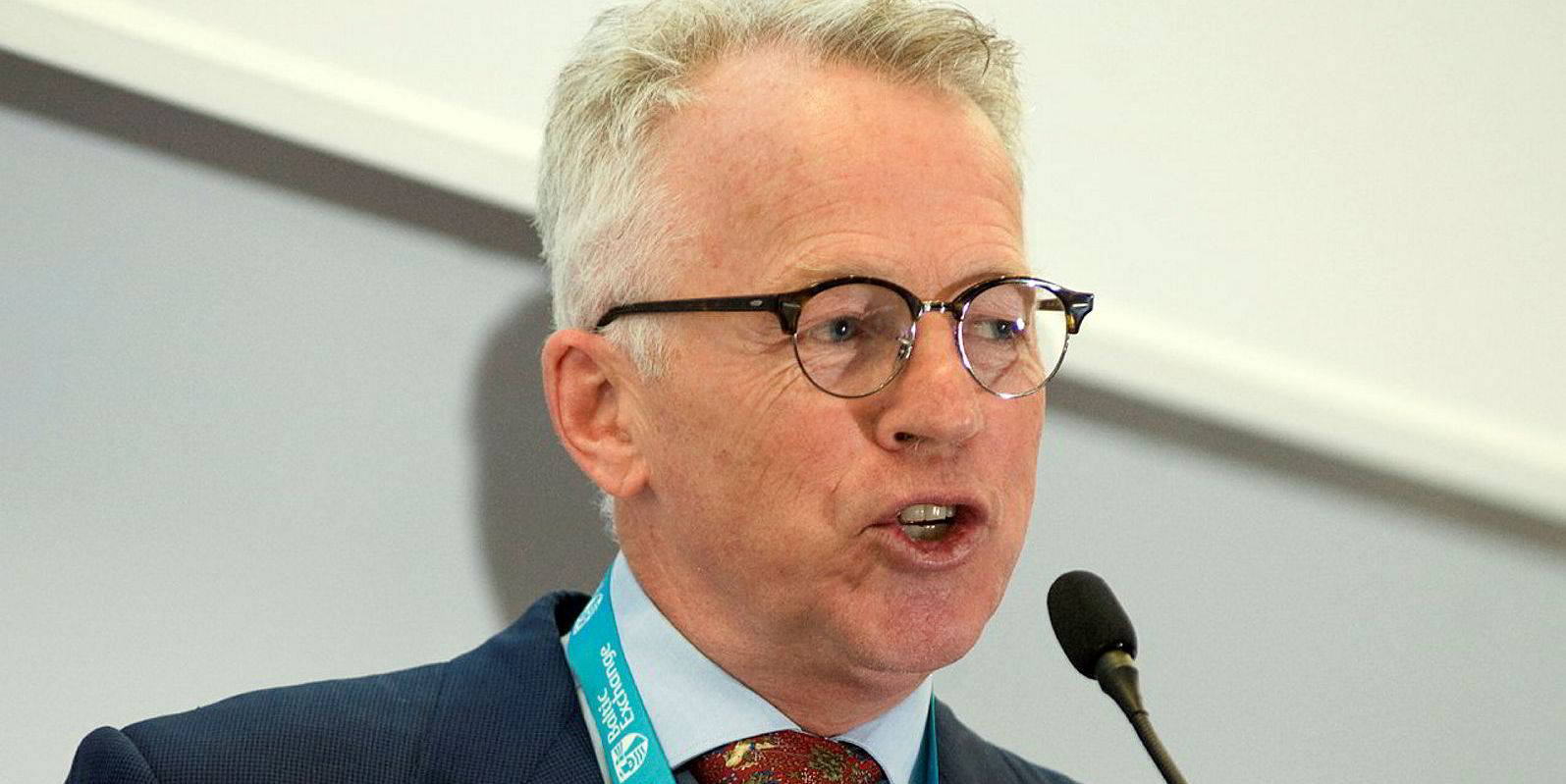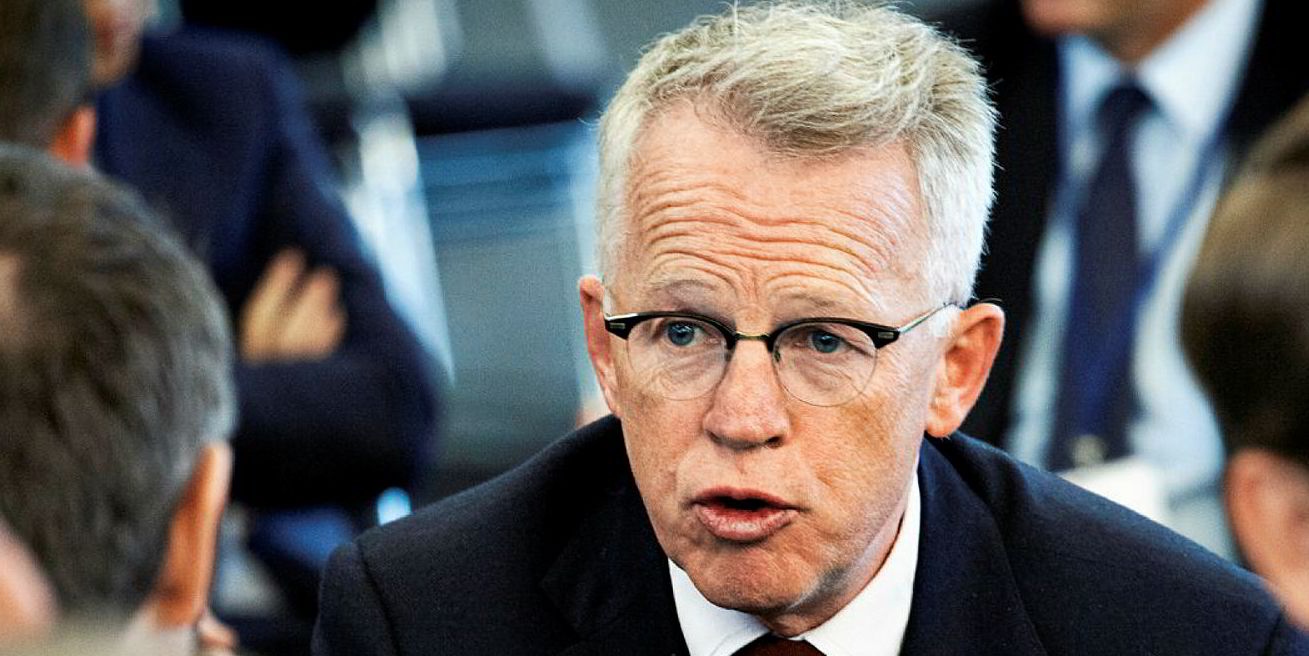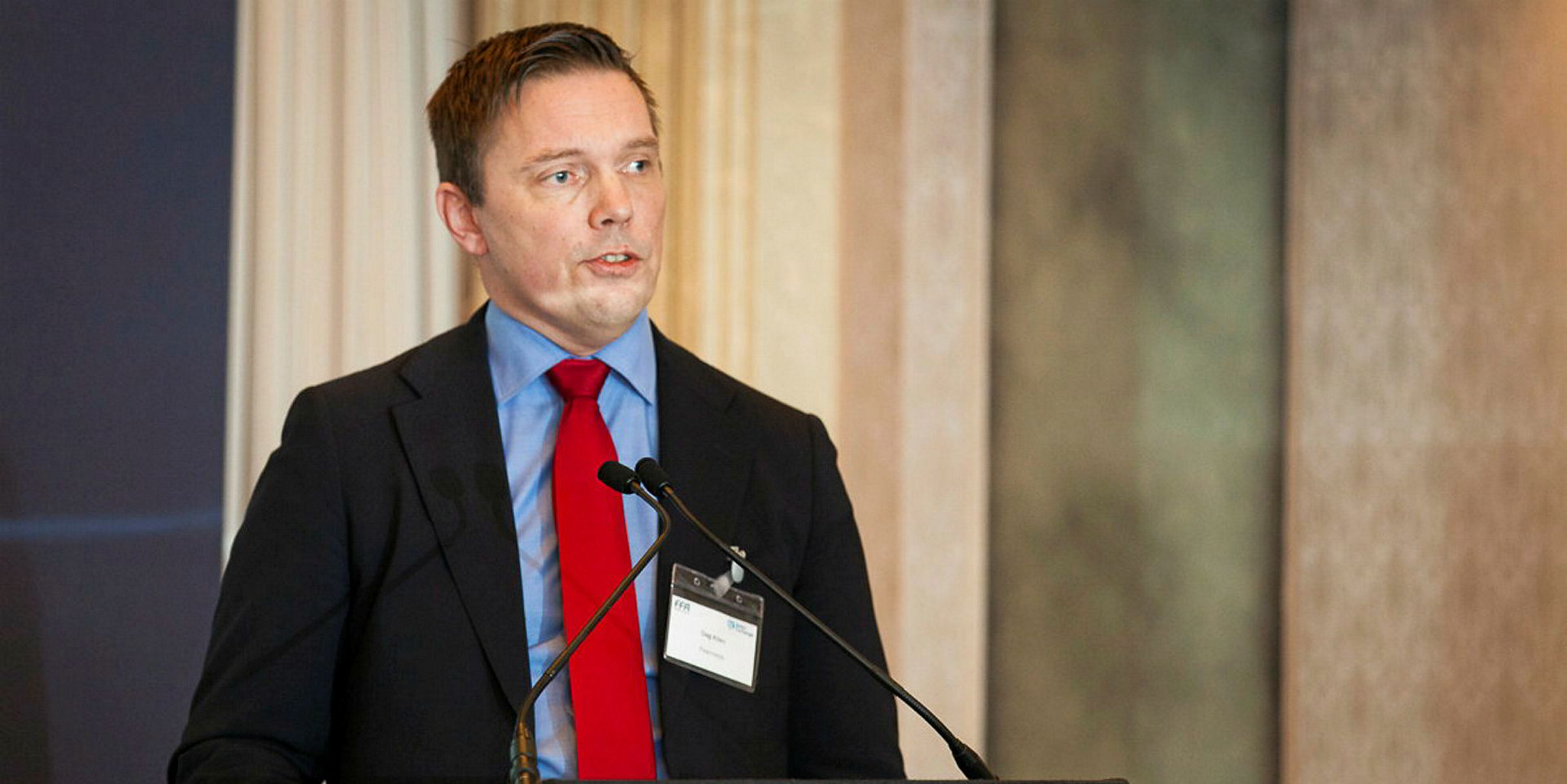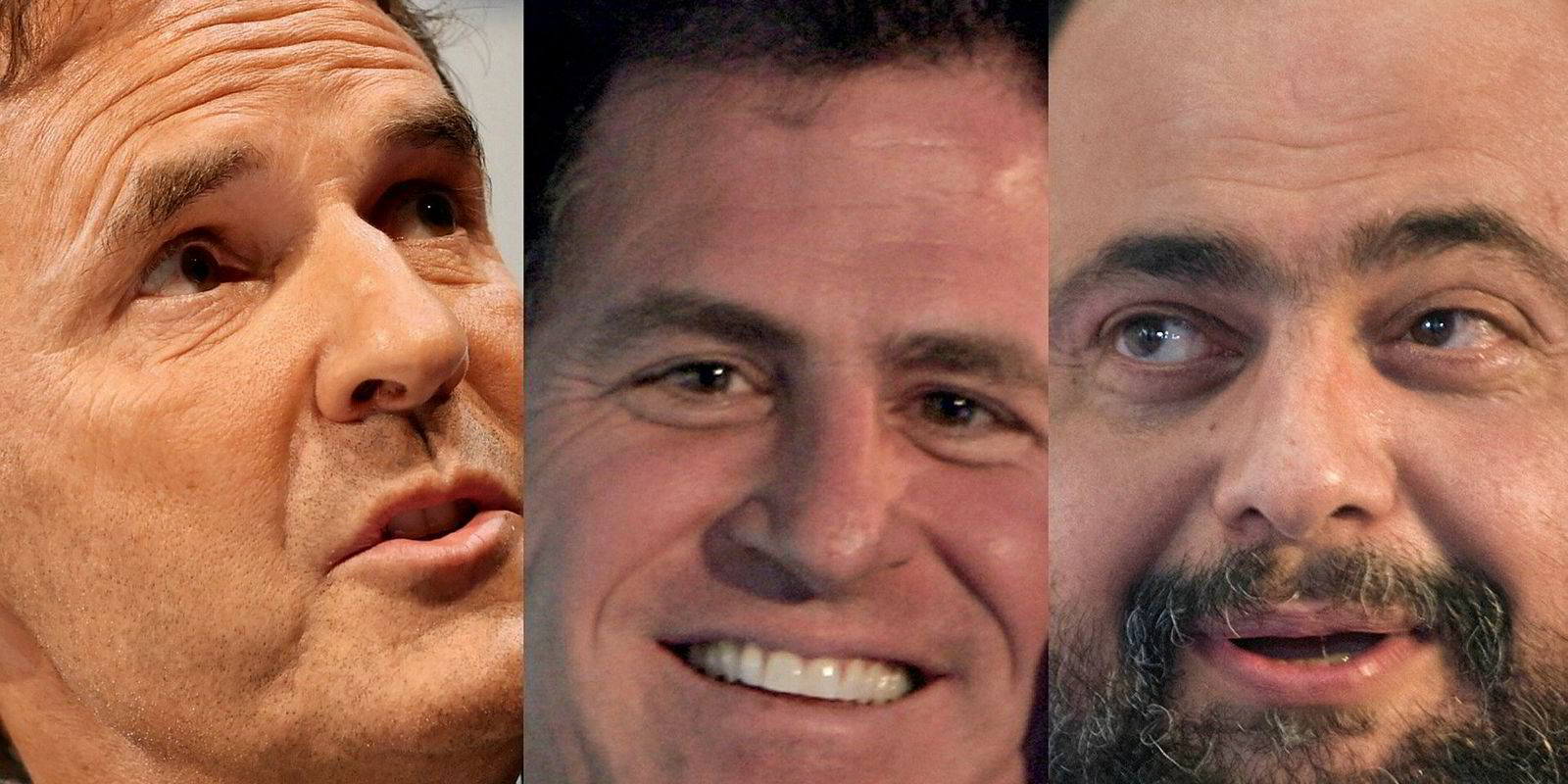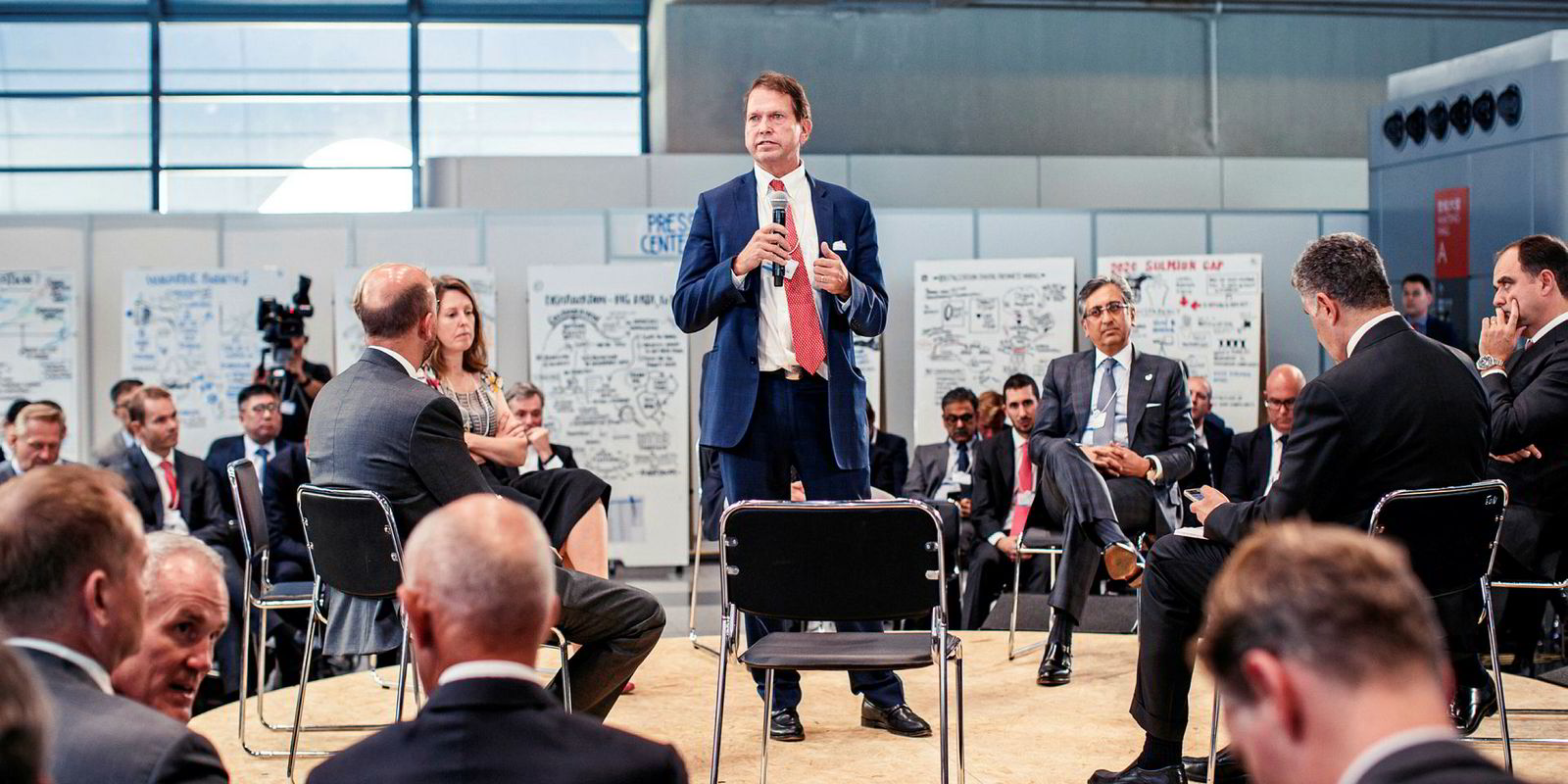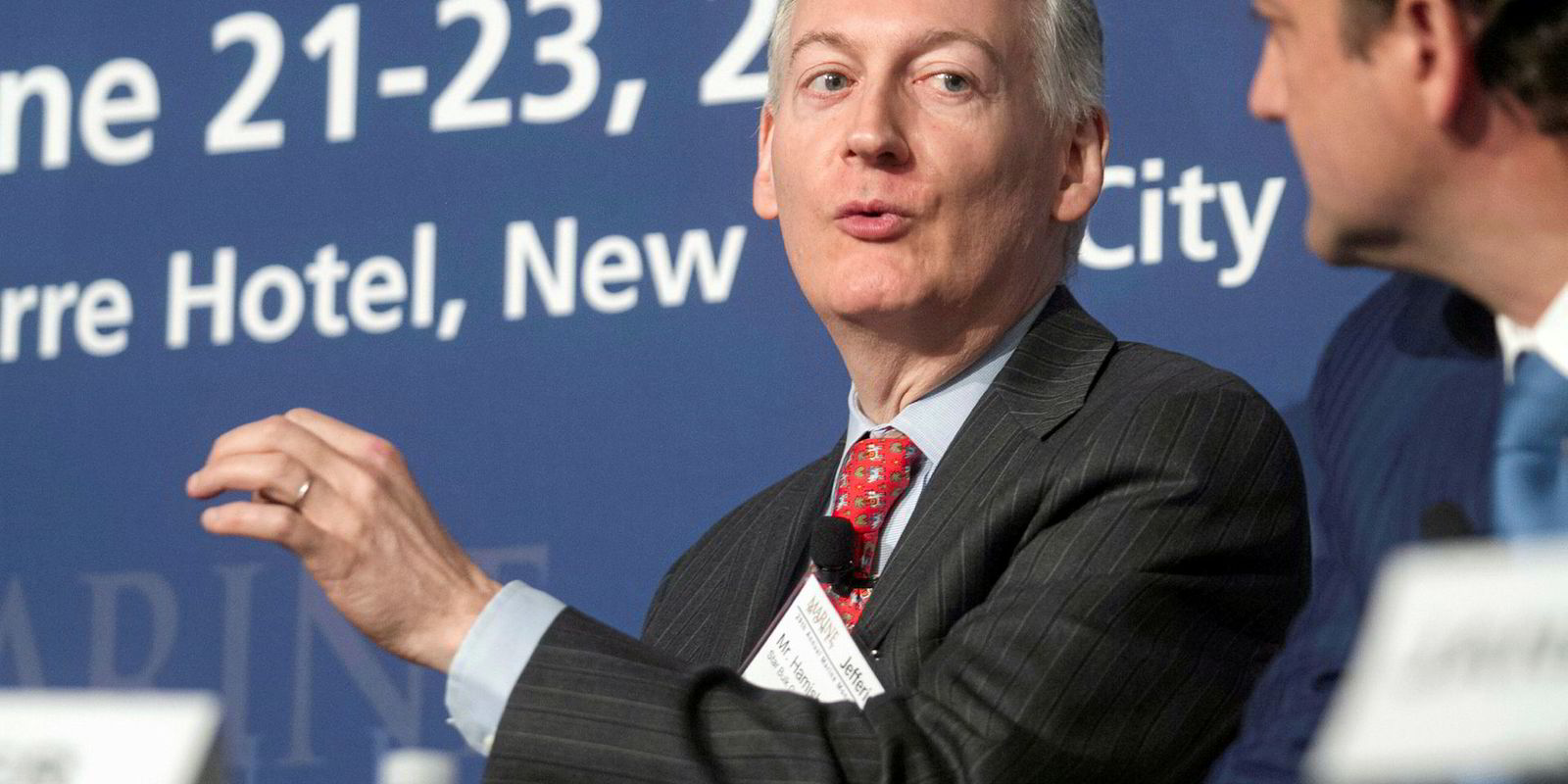Scrubber-sceptic Euronav believes growing environmental resistance to the open-loop style exhaust gas cleaning systems is adding to uncertainty around the economic benefits of the technology.
If its stance proves to be wrong, however, Euronav is holding a unique back-up options including the two largest tankers on the water which could be used to store bunkers, chief executive Paddy Rodgers says.
Euronav’s latest comments on the controversial scrubber topic come after Singapore banned open-loop scrubbers in its waters and China imposed restrictions on their use.
In a presentation to investors in London, Rodgers said the IMO had changed its own wording on the issue, noting it now states there is no evidence that waste water dumped into the sea is not harmful.
“That is a big sea change,” Rodgers told the Astrup Fearnley shipping and offshore seminar.
Euronav is the most outspoken sceptic in the VLCC market on the use of scrubbers, which will be installed on 69% of the newbuildings presently on order, according to Clarksons. This is larger than any other shipping segment.
Rodgers told TradeWinds the marine environments in the shallow and coastal areas need to be carefully looked after. “That’s why the Chinese government is active.”
“There is no environment benefit from using scrubbers,” Rodgers added. “Nobody in the world has put scrubbers onboard for environmental reasons.
“Every single person put scrubbers onboard for economic reasons … so they can continue to burn dirty, high-sulphur fuel.”
Euronav is one of the few listed tanker owners to have opted not to install scrubbers on its big tankers and Rodgers has in the past spoken of its comfort in running against the pack.
Frontline, DHT Holdings, International Seaways, Okeanis Eco Tankers and Hunter Group, have all decided to adopt the technology for all or part of their fleets.
“People ask why we are not making [scrubber] investments? I say we are sceptical, that’s all,” Rodgers said.
Horses, carts and capex sickness
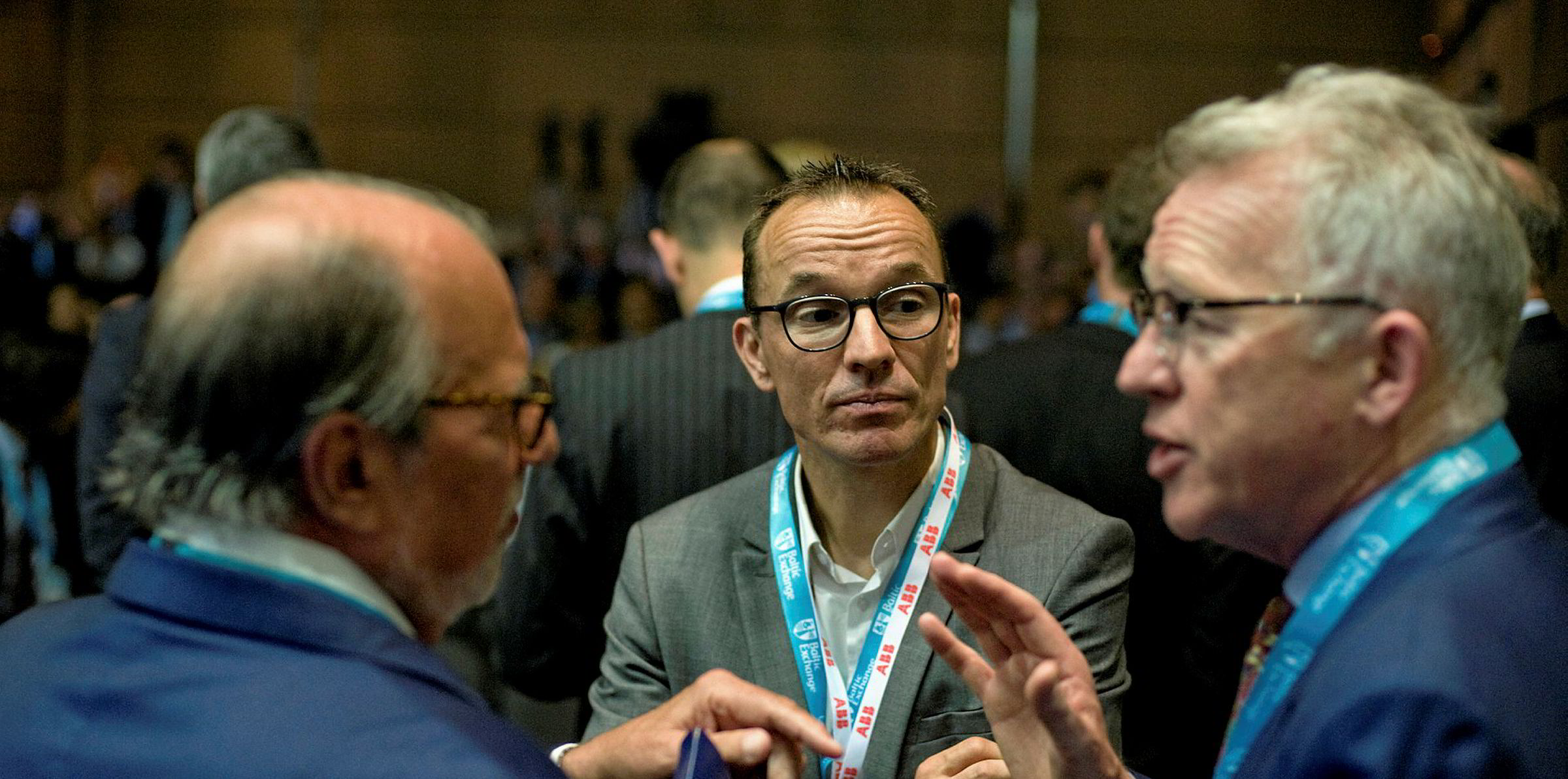
Rodgers said the sceptical position came as the scrubber debate involved “putting the cart before the horse”.
“The sickness of our industry is all of our cost is in capex — we swap money for time,” he said. “Then that time burns in our hands and rather than take nothing as a return on our investment we take anything.
“Capex up front against time given to you is a big problem. As we have seen for the last two years shipowners will cut each other’s throat to get something, anything, even if it means a loss for the capital they have invested.
“So, to be told the cure to this is to make further capex expenditure in the hope there will be a fuel oil spread high enough and long enough for us to make money is something we are sceptical about.”
Who takes the cake?
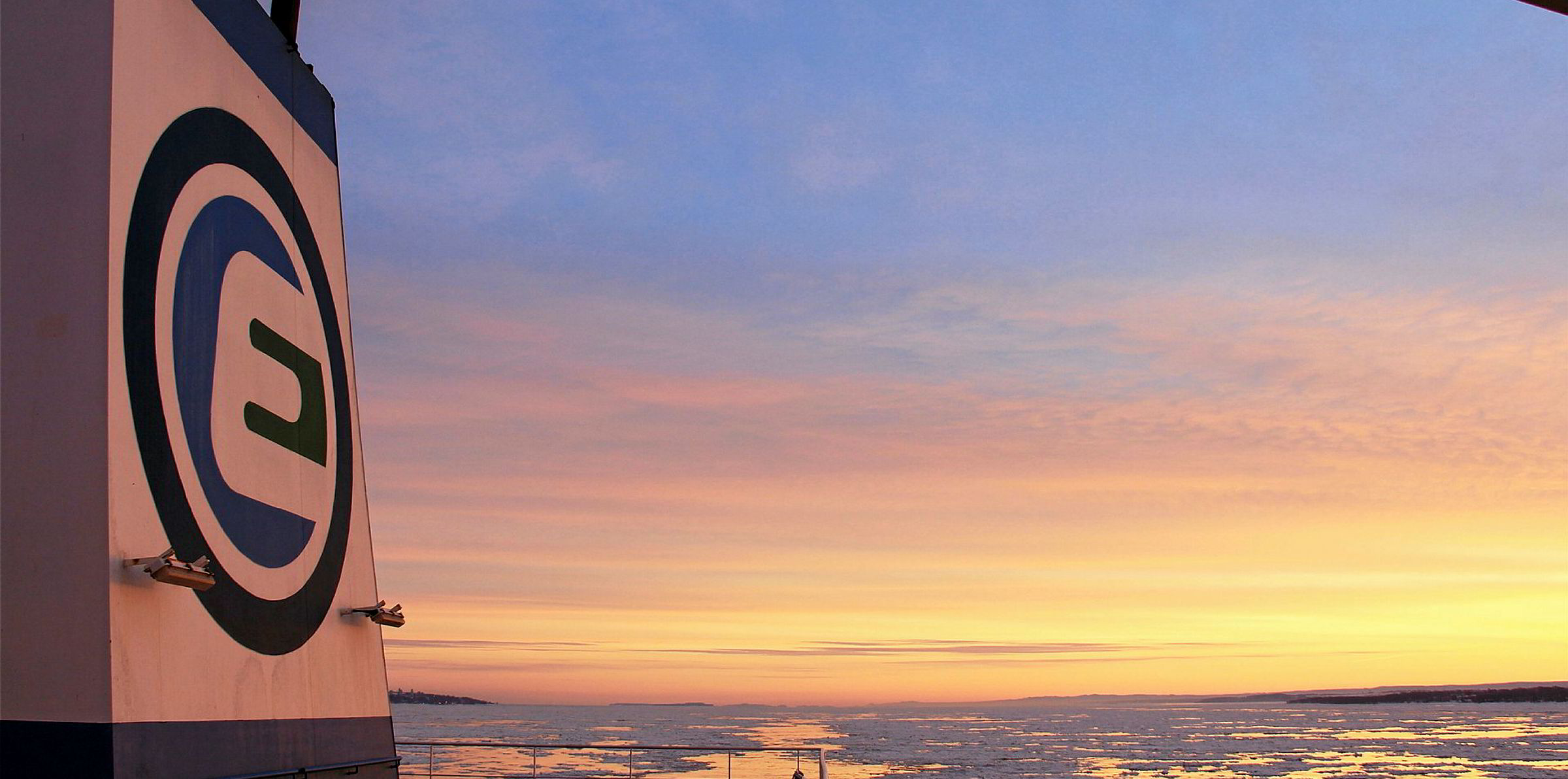
Rodgers also questioned if tanker owners would be able to take home the full savings of fuel costs when having scrubbers onboard.
He used the possible example of a Euronav VLCC, with a scrubber, arriving in Brazil after offloading a cargo in the US Gulf.
“What do you think the charterer is going to say? ‘You have not had the same ballast as a ship from China. You can have it [the cargo], but you don’t want to go back to West Africa or the AG (Arabian Gulf).
“’You can have it, but you have to hand 10 points on that advantage to me, and, if you don’t, I’ll fix John Angelicoussis out of China,” Rodgers suggested.
Two giant solutions
While Euronav’s stance is well known, Rodgers said the company’s ownership of the world’s only two ULCCs — the 441,500-dwt Europe (built 2002) and Oceania (built 2003) — is part of its counterplan if its position on the technology proves to be wrong.
He said: “When you want to get cheap bunkers and your ship is not in position and by the time it gets there the market has changed, how frustrating will that be?
“When the market gets really cheap bunkers but the maximum you can load is 5,000 tons — the maximum Euronav can load when there is really cheap bunkers is going to be 450,000 tons at a time.”
